Letitia James appears to eye Trump’s Westchester golf club and 212-acre estate as properties she could seize as clock ticks to the deadline for him to pay $454 million
- The New York Attorney General formally recorded judgments in Westchester County on March 6
- Trump’s gold club and Seven Springs estates are both located in the county north of Manhattan
- Donald Trump faces a March 25 deadline for bail in fraud case
New York Attorney General Letitia James appears to be gearing up to possibly seize Donald Trump’s Westchester golf club and Seven Springs estate as the deadline approaches for the ex-president to post $454 bail million in his civil fraud trial.
The attorney general formally entered judgments on March 6 in Westchester County, where Trump has the two properties just north of Manhattan.
According to the county clerk’s online database, the judgments were registered against Trump, the Trump Organization and his two adult sons Don Jr. and Eric. The action was first reported by Bloomberg News.
It comes as Trump faces a Monday deadline to secure the court-ordered $454 million in the civil fraud case.
The move signals that the attorney general may be keeping an eye on the property if Trump fails to post bail. The filing did not provide a reason for the registration or identify any specific Trump assets.
DailyMail.com contacted the Attorney General’s office for comment.
New York’s attorney general signals she could prepare to seize Trump properties in Westchester County, including the Trump National Golf Club, with filing judgments in the county north of Manhattan
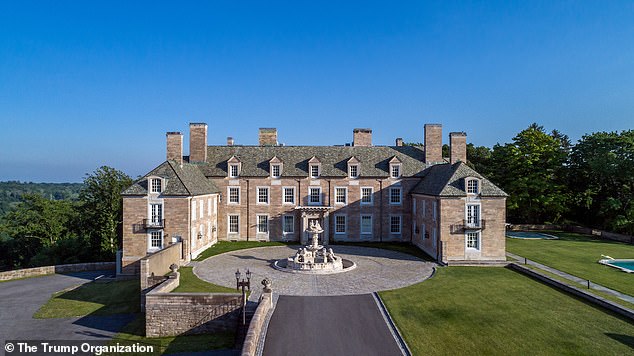
Trump’s 212-acre Seven Springs estate in Bedford, NY is also in Westchester County
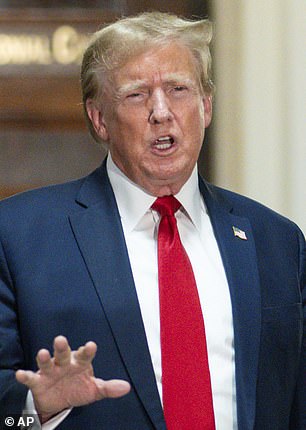
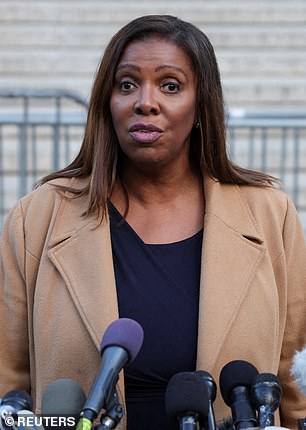
Trump has until Monday, March 25 to secure the $454 million bond. He has said the judge has made a ‘requirement that he knows is impossible’
Westchester County is home to Trump National Golf Club and Trump’s 212-acre Seven Springs estate.
Trump’s lawyers have said he cannot post the $454 million bail. They said they had approached 30 companies, but none were willing to take parts of his real estate empire as collateral.
James has said she is prepared to seize Trump’s assets if he misses the March 25 deadline for issuing a judgment on the bond, even if the ex-president appeals.
Trump’s legal team has asked an appeals court to waive the bail, or allow him to post a smaller bail of $100 million if he appeals, which James opposes.
Meanwhile, the Trump Organization’s finances are now under scrutiny. It was part of Judge Arthur Engoron’s order in the fraud case.
Barbara Jones, who oversaw the company as part of a preliminary injunction, will monitor the company for the next three years starting Thursday.
It must be notified of any major cash transfer, debt restructuring, asset dissolution, and any attempt to secure bonds.
Trump has gone after Engoron, who ruled in the case, writing in a social media post on Thursday that the judge “has imposed on us a demand that he knows is impossible to enforce.”
It was the latest in a series of messages Trump has fired off attacking the judge. On Tuesday, he wrote that the bond should be sold, even as he appealed Engoron’s ruling.
“I would be forced to mortgage or sell Major Assets, perhaps at Fire Sale prices, and if and when I win the appeal, they would be gone,” he wrote in a post on Tuesday.
The verdict was handed down in Manhattan, so there was no need to register the verdict in New York County, where Trump also has his property at 40 Wall Street and the famous Trump Tower on Fifth Avenue.
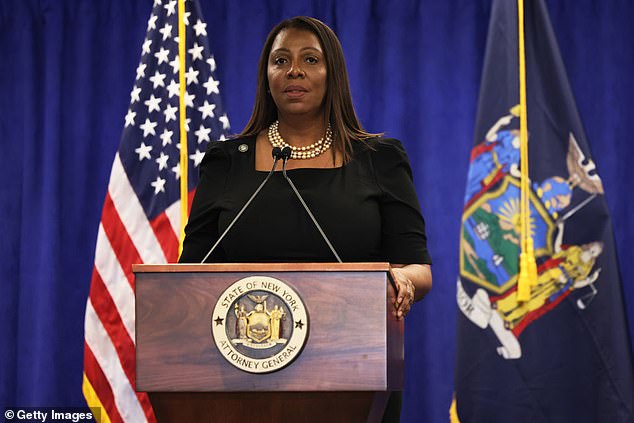
New York AG Letitia James has already threatened to seize assets if Trump does not post a bond and specifically mentioned 40 Wall Street by name in a February interview
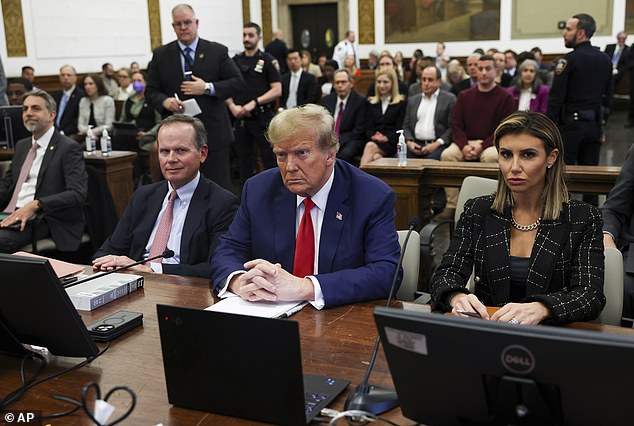
The former president’s lawyers wrote in a court filing that “obtaining bail for the full amount” of the judgment “is not possible under the circumstances presented.” Trump is pictured during the fraud trial in January
James told ABC News last month that her office was prepared to seize assets if Trump could not pay the fraud fine.
She specifically mentioned 40 Wall Street by name in the interview.
But the Seven Springs estate also weighed heavily in the trail that found Trump had inflated the values of several properties.
He bought the estate in 1995 for $7.5 million. However, he valued the property years later at more than five times its appraised value, claiming it was worth as much as $291 million.
